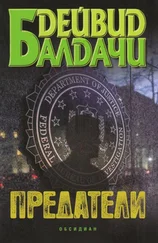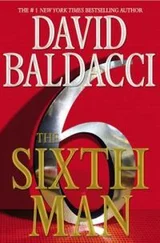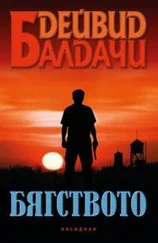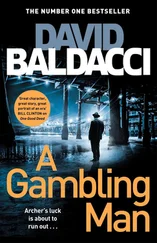He rubbed his head. It had become a habit so ingrained that sometimes he didn’t even know he was doing it.
He looked around the large dining room once more and noted that many of the men had World War II caps on with stitched lettering signifying the military branches they had served in during the war. Some had pins on them representing specific units. They were all very old now, the youngest of them in their late eighties. Almost all were in wheelchairs or used walkers or canes to get around. They were gray, bent, but their features were proud, animated. They had fought the good fight and survived to have families and retirements and tour bus rides augmented with Cracker Barrel feasts.
Rogers thought, I fought the good fight too. And I have nothing.
Except he had a chance to make it all right. And he intended to give it the best shot he possibly could.
He finished his meal and hit the highway, driving right into the building storm.
He had something to get and he needed a special place to get it. Fortunately, he had passed a billboard that held the answer. And that would delay his reaching his destination. But that was okay. There would be time.
He slept in his car in the parking lot of a shuttered Walmart. Things must be getting bad, he thought, if Walmarts couldn’t stay in business.
It was chilly and rainy and the Chevy’s passenger-side window leaked. He watched the drips for a few minutes and then fell asleep.
He rose the next morning, drove off, and found a place to eat. At noon he headed to the gun show he had seen advertised on the billboard.
In some states gun shows had one big loophole. Private sellers didn’t have to do background checks. Only licensed ones did. Despite political moves to close this hole, some sellers did not abide by the rules. Which was perfectly fine with Rogers.
Though things were changing, he could probably buy a weapon on the Internet without a background check, only he didn’t have a computer, an email address, a credit card, or a physical address for them to ship the gun to.
He walked into the rambling tent that had been erected on the site and saw that dozens of dealers had set up small booths inside. The place was already packed, and he spent an hour simply walking around and observing. Most people didn’t observe. They were too absorbed in themselves. Thus they missed nearly all that was actually instructive.
He could see that most people here were licensed dealers. Buyers were producing ID and filling out the background check forms that would be run through the FBI’s NCIC database. The process took about ten minutes. There were a few private dealers, but they were selling shotguns and long guns and Confederate flags and cookies. And some of those didn’t even have a booth. They were simply walking around with sandwich board signs inked with what they had to sell.
When the space in front of a particular seller cleared, Rogers walked over and looked at a pistol in its original packaging. The seller was a big flabby man in his forties wearing a camo shirt, jeans, and combat boots.
He eyed Rogers. “Beauty, ain’t it?”
Rogers looked over the pistol. He said, “M11. Military use only.”
The seller smiled and put out his hand. “Name’s Mike Donohue, and I can tell you wore the uniform at some point if you know about the vaunted M11.”
Rogers shook the man’s hand, careful to avoid squeezing it too tightly.
Donohue took out the gun and held it up. “Collector’s item. Explains the price.”
“Why a collector’s item?”
“Some time back the Air Force ordered a bunch of M11s but ended up not taking fifty of them. By contract Sig couldn’t sell the M11 to civilians, like you said. But Sig Sauer could get a grand for each, and that was fifty thou potentially down the toilet, so they had incentive to get around that somehow. Then somebody had the genius idea that if you added another letter to the model number it would no longer technically be an M11, right? The A had already been taken for another M11 model, the M11-A1, so this became the M11-B.” He handed the gun to Rogers and pointed out the letter. “Sig had it reengraved. You can see the B right there. And voilà, a civilian can own an M11. The manual that comes with it is military too. All the contents of the box are original. There’s even a warning in there about radiation leakage from the tritium sights, but that’s only for the Army and Navy versions, not the Air Force. So you’ll have to find something else to kill you.”
Donohue laughed and slapped Rogers on the shoulder.
Rogers fought back a nearly overwhelming urge to crush the man’s face in retaliation.
Donohue continued, “Now, it’s based on the original P228 frame, so it will only accept the thirteen-round mags. It comes with three. It won’t work with the fifteen-round mags.”
Rogers held the gun, sighted through it, checked the balance, slid his fingers along the grip, and slid back the rack twice to test the action.
Donohue said, “It’s got the carbon steel slide instead of the milled version the P229 has. But there’s only about a two-ounce difference between the two.”
“You mind if I strip it?”
“Go ahead. I got nothing to hide. Just be gentle with her.” Donohue laughed and slapped Rogers on the shoulder again. “Damn, man, I bet you’re older’n me, but I don’t think you got an ounce of fat on you. Just muscle and gristle.” He slapped his substantial belly. “Me, I’m just fat!” He laughed again.
Rogers nimbly field-stripped the pistol and then put it back together.
Donohue said, “Only four grand. It’s a steal, really. Only fifty of these beauties in existence. Think about that.”
“I would have to steal it,” said Rogers. “Because I don’t have four thousand dollars.”
“I got others for a lot less.”
Rogers looked some of those over and then withdrew as other potential buyers came along and crowded him out.
He backed about twenty feet away and watched Donohue. Periodically he saw him go out through a flap in the tent and come back with more merchandise.
Rogers went over to another booth and bought a Ka-Bar knife. No background check was required for this purchase, though a knife could kill too. He ran his finger lightly over the serrated edge and came away satisfied. He slid the knife back into its leather holder and attached it to his belt. He also bought a cheap plastic flashlight.
A few minutes later, he walked outside and around to the area from where Donohue had brought in more stock. He zipped up his jacket against the chilly wind. A big Dodge Ram was parked there. Attached to it was a small trailer. The truck was locked, the trailer padlocked. As Rogers watched from a distance, Donohue came out, unlocked the trailer, took out a few more boxes, locked the trailer back up, and went inside the tent again. Rogers moved forward, glad to have confirmed which vehicle was Donohue’s.
In the bed of the Ford F-150 parked next to Donohue’s ride, Rogers saw some cardboard boxes and old, rusted tools. None of it was any use to him. What he wanted was still inside the tent. He retreated to his car, pulled it around to that side of the tent, and waited.
Light grew to night. And the temperature continued to drop.
But time and cold meant nothing to him.
His stomach had rumbled once, and then he rubbed his head, focused, and the feelings of hunger vanished.
People streamed in and out of the tent for hours, until finally the stream grew to a trickle. And then the parking lot emptied. And then the dealers started taking down their booths and packing up what they hadn’t sold.
Rogers watched as Donohue came out carrying several boxes. One of them, he noted, was the distinctive case of the M11-B. He wasn’t surprised no one had bought it. Most of the potential purchasers he’d seen inside were working stiffs. He doubted any of them had four grand to throw down on a fancy-ass collector’s pistol.
Читать дальше
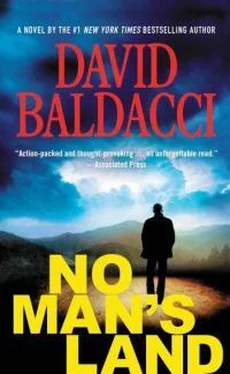

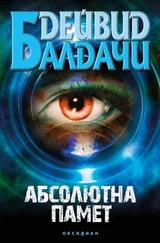


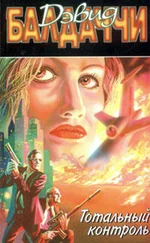
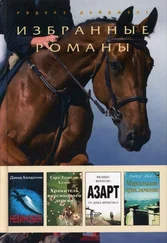
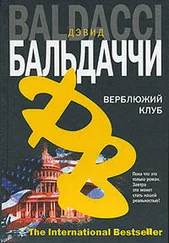
![Дэвид Балдаччи - A Gambling Man [calibre]](/books/384314/devid-baldachchi-a-gambling-man-calibre-thumb.webp)
